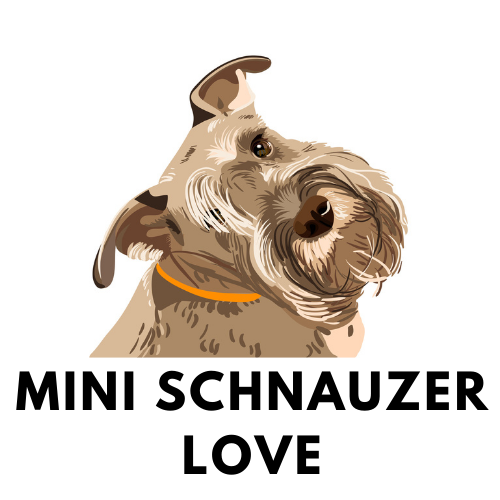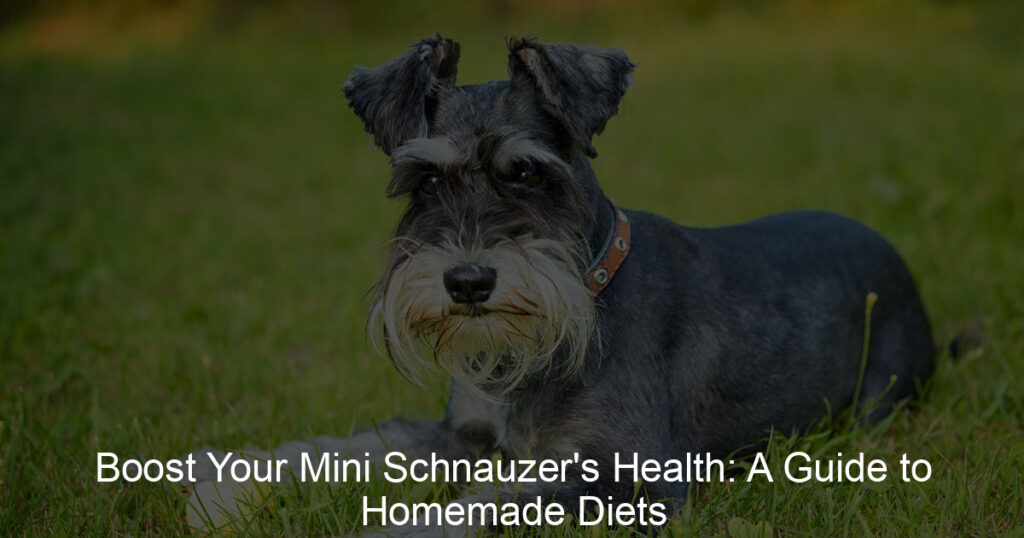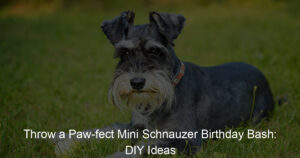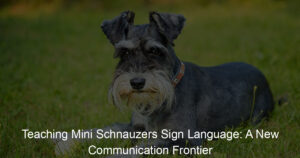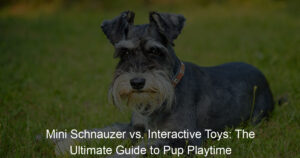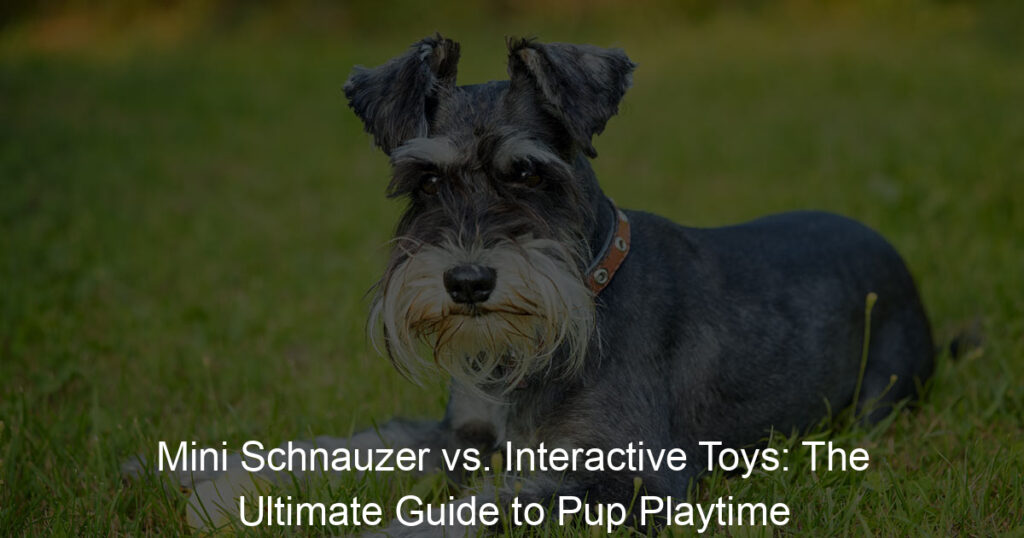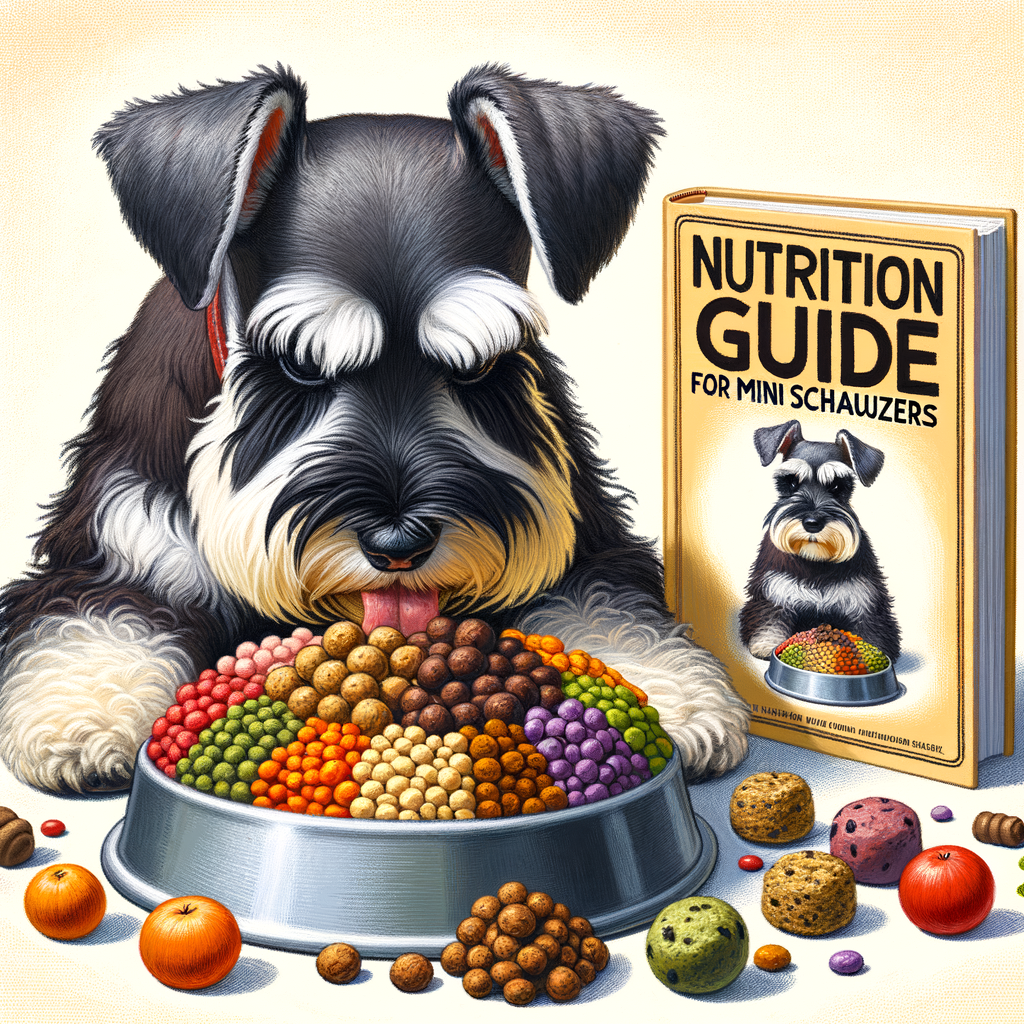
Introduction to Mini Schnauzers Diet
When it comes to the health and happiness of your Mini Schnauzer, diet plays a crucial role. This breed has specific nutritional needs that must be met to ensure optimal health. Let’s dive into the world of Mini Schnauzer nutrition and explore the benefits of homemade dog food.
- Understanding the nutritional needs of Mini Schnauzers
- Common commercial dog food issues
- Benefits of homemade dog food
Mini Schnauzers are a lively and energetic breed. They require a balanced diet rich in proteins, carbohydrates, fats, vitamins, and minerals. Proteins help in muscle development, fats provide energy, and carbohydrates aid digestion. Vitamins and minerals are essential for a healthy immune system and overall well-being.
While commercial dog food may seem convenient, it often contains fillers, artificial colors, and preservatives that can be harmful to your Mini Schnauzer’s health. Some common issues include obesity, allergies, and digestive problems. It’s important to read the labels and choose high-quality commercial dog food if you decide to go this route.
Preparing homemade dog food allows you to control the quality and quantity of ingredients, ensuring your Mini Schnauzer gets the right nutrients without any harmful additives. Homemade food can lead to better digestion, healthier skin and coat, increased energy levels, and a longer lifespan. Plus, you can tailor the meals to your dog’s specific tastes and dietary needs.
In the following sections, we’ll provide a detailed nutrition guide for Mini Schnauzers, explore homemade dog food recipes, and share case studies of Mini Schnauzers thriving on a homemade diet. By the end of this article, you’ll be equipped with the knowledge to boost your Mini Schnauzer’s health with a balanced and nutritious diet.
Nutrition Guide for Mini Schnauzers
When it comes to feeding your Mini Schnauzer, it’s important to understand the essential nutrients they need to stay healthy. This guide will walk you through the key nutrients your furry friend needs and why they are important.
Essential Nutrients for Mini Schnauzers
Like humans, Mini Schnauzers require a balanced diet to ensure they get all the essential nutrients they need. Let’s take a closer look at these nutrients:
- Proteins and Fats
- Carbohydrates
- Vitamins and Minerals
Proteins are the building blocks of your Mini Schnauzer’s body. They help in muscle development and tissue repair. Fats, on the other hand, provide energy and help keep your dog’s skin and coat healthy. According to the National Research Council, adult Mini Schnauzers require about 18% protein and 5% fats in their diet.
Carbohydrates provide your Mini Schnauzer with the energy they need to stay active and playful. They should make up about 50% of your dog’s diet. Good sources of carbohydrates include whole grains like brown rice and oats.
Vitamins and minerals are essential for a variety of bodily functions. For instance, calcium and phosphorus are important for strong bones and teeth, while vitamins A and E support vision and immune function. A balanced diet should provide all the necessary vitamins and minerals your Mini Schnauzer needs.
Remember, every dog is unique and may have different nutritional needs. Always consult with your vet to determine the best diet for your Mini Schnauzer.
Feeding Schedule for Mini Schnauzers
Understanding the right feeding schedule for your Mini Schnauzer is crucial for their health and well-being. Whether you have a puppy or an adult Mini Schnauzer, each has its own unique dietary needs and feeding schedule. Let’s delve into the specifics.
- Puppy Feeding Schedule
- Adult Feeding Schedule
Mini Schnauzer puppies are full of energy and require a diet that can keep up with their active lifestyle. Puppies should be fed three to four times a day until they are about six months old. This frequent feeding supports their rapid growth and development.
Here’s a simple feeding schedule for your Mini Schnauzer puppy:
| Time | Meal |
|---|---|
| 7:00 AM | Breakfast |
| 12:00 PM | Lunch |
| 5:00 PM | Dinner |
As your Mini Schnauzer transitions into adulthood, their feeding schedule will also change. Adult Mini Schnauzers should be fed twice a day to maintain a healthy weight and energy level. Overfeeding can lead to obesity, a common issue in this breed.
Here’s a recommended feeding schedule for your adult Mini Schnauzer:
| Time | Meal |
|---|---|
| 8:00 AM | Breakfast |
| 6:00 PM | Dinner |
Remember, these schedules are guidelines and may need to be adjusted based on your Mini Schnauzer’s specific needs. Always consult with your vet to ensure your dog is getting the right amount of food and nutrients.
Homemade Dog Food for Mini Schnauzers
Feeding your Mini Schnauzer homemade dog food can be a rewarding experience. Not only will you know exactly what your furry friend is eating, but you can also customize the meals to their specific health needs. Let’s explore the benefits of homemade dog food.
Benefits of Homemade Dog Food
There are several key benefits to consider when deciding to make your Mini Schnauzer’s food at home:
- Control over ingredients: When you make your dog’s food, you know exactly what goes into it. This means you can avoid any ingredients that may cause allergies or other health issues. You can also ensure that the ingredients are fresh and of high quality.
- Customization for individual health needs: Each dog is unique and may have specific dietary needs. Homemade food allows you to tailor your Mini Schnauzer’s diet to their specific health needs, whether that’s a low-fat diet for weight management or a high-protein diet for active dogs.
- Elimination of preservatives and additives: Many commercial dog foods contain preservatives and additives that can be harmful to your dog’s health. By making your dog’s food at home, you can eliminate these potentially harmful substances.
In conclusion, homemade dog food can provide numerous benefits for your Mini Schnauzer. Not only does it allow you to control the quality and type of ingredients, but it also enables you to customize the diet to your dog’s specific health needs. Plus, you can avoid the preservatives and additives found in many commercial dog foods.
Homemade Dog Food Recipes
Feeding your Mini Schnauzer homemade meals can be a rewarding experience. Not only does it allow you to control the ingredients, but it also lets you tailor the meals to your pet’s specific health needs. Here are two simple, nutritious recipes you can try at home.
-
Protein-Packed Recipe
This recipe is perfect for Mini Schnauzers who lead an active lifestyle. It’s packed with high-quality protein to support muscle growth and repair.
Ingredients Quantity Lean ground turkey 1 pound Brown rice 1.5 cups Carrots 1 cup Peas 1/2 cup Cook the ground turkey in a non-stick pan until no longer pink. Cook the brown rice according to the package instructions. Steam the carrots and peas until tender. Mix all the ingredients together and let it cool before serving.
-
Vegetable and Grain Recipe
This recipe is a great source of fiber and essential vitamins. It’s perfect for Mini Schnauzers who need a balanced diet.
Ingredients Quantity Quinoa 1 cup Sweet potatoes 1 cup Green beans 1/2 cup Chicken breast 1 pound Cook the quinoa and chicken breast separately. Boil the sweet potatoes and green beans until they’re soft. Once everything is cooked, mix them together and let it cool before serving to your Mini Schnauzer.
Remember, these recipes are just a starting point. Feel free to adjust the ingredients and quantities to suit your Mini Schnauzer’s taste and nutritional needs. Always consult with your vet before making any significant changes to your pet’s diet.
Mini Schnauzers Food Guide
When it comes to feeding your Mini Schnauzer, it’s important to focus on the quality and safety of the ingredients you choose. Here’s a guide to help you make the best choices for your furry friend.
Choosing the Right Ingredients
Choosing the right ingredients for your Mini Schnauzer’s diet is crucial. It’s not just about picking any dog food off the shelf. You need to consider the quality of the ingredients and whether they are safe for your Mini Schnauzer.
- Quality of Ingredients
- Safe and Unsafe Foods for Mini Schnauzers
High-quality ingredients are essential for your Mini Schnauzer’s health. This means choosing foods that are rich in proteins, vitamins, and minerals. Avoid foods with artificial colors, flavors, or preservatives, as these can be harmful to your dog’s health. Instead, opt for natural, whole foods that provide the nutrients your Mini Schnauzer needs to stay healthy and active.
Not all foods are safe for Mini Schnauzers. Some foods can cause digestive problems, allergies, or even be toxic. Safe foods include lean meats, fish, vegetables, and certain fruits like apples and bananas. Unsafe foods to avoid include chocolate, grapes, onions, and foods high in salt or sugar.
Remember, every dog is unique. What works for one Mini Schnauzer may not work for another. Always consult with your vet before making any significant changes to your dog’s diet.
Portion Control
When it comes to feeding your Mini Schnauzer, it’s not just about what you feed them, but also how much. Portion control plays a crucial role in maintaining your pet’s health. Let’s delve into understanding portion sizes and how to adjust them based on your dog’s weight and activity level.
- Understanding Portion Sizes
Portion sizes for Mini Schnauzers can vary greatly depending on their age, weight, and activity level. A common rule of thumb is to feed your dog about 1 cup of food for every 10 pounds of their body weight. However, this is just a starting point. It’s important to observe your dog’s hunger cues and adjust their food intake accordingly.
For instance, if your Mini Schnauzer seems hungry even after eating, it might be a sign that you need to increase their portion size. On the other hand, if your dog is gaining weight or leaving food in their bowl, you might need to cut back on their portions.
- Adjusting Portions Based on Weight and Activity Level
Just like humans, dogs need more or less food based on their activity level. A Mini Schnauzer that gets plenty of exercise will need more food than a less active one. Similarly, a heavier dog will need more food to maintain their weight than a lighter one.
It’s important to regularly weigh your Mini Schnauzer and adjust their food portions as needed. If your dog is gaining weight, try reducing their food intake by about 10%. If they’re losing weight, try increasing their food intake by the same amount.
Remember, these are just guidelines. Always consult with your vet if you’re unsure about how much to feed your Mini Schnauzer.
Proper portion control can help keep your Mini Schnauzer healthy and happy. By understanding portion sizes and adjusting them based on your dog’s weight and activity level, you can ensure they’re getting the right amount of food they need.
Healthy Homemade Dog Food: Case Studies
Let’s take a look at some real-life examples of Mini Schnauzers thriving on homemade diets. These success stories can provide inspiration and guidance for those considering making the switch.
Success Stories of Mini Schnauzers on Homemade Diets
-
Case Study 1: Max’s Transformation
Max, a 5-year-old Mini Schnauzer, was struggling with weight issues and low energy levels. His owner decided to switch to a homemade diet, focusing on lean proteins, vegetables, and whole grains. Within six months, Max lost 2 pounds and his energy levels skyrocketed. His coat became shinier, and his vet was impressed with his overall health improvement.
-
Case Study 2: Bella’s Health Improvement
Bella, a 3-year-old Mini Schnauzer, was dealing with digestive issues. Her owner started preparing homemade meals, incorporating easily digestible foods like sweet potatoes and chicken. Bella’s digestive problems improved significantly within a few weeks. She also seemed happier and more active, showing the positive impact of a well-balanced homemade diet.
These case studies highlight the potential benefits of homemade diets for Mini Schnauzers. However, it’s essential to consult with a vet or a pet nutrition expert before making any significant changes to your dog’s diet.
Expert Opinions on Homemade Diets for Mini Schnauzers
Let’s delve into the perspectives of professionals in the field of canine nutrition. These experts have extensive knowledge and experience in creating balanced, homemade diets for Mini Schnauzers.
-
Opinion 1: Dr. Sarah Johnson, Canine Nutritionist
Dr. Sarah Johnson, a renowned canine nutritionist, believes that a homemade diet can be beneficial for Mini Schnauzers. She says, “A well-planned homemade diet can provide all the necessary nutrients for a Mini Schnauzer. It allows owners to control the quality of ingredients, avoid unnecessary additives, and cater to their pet’s specific dietary needs.”
However, she emphasizes the importance of consulting with a vet or a pet nutritionist to ensure the diet is balanced and complete. “It’s crucial to include a variety of proteins, vegetables, and grains, as well as appropriate supplements to meet all nutritional requirements,” she adds.
-
Opinion 2: Dr. Mark Roberts, Veterinarian
Dr. Mark Roberts, a seasoned veterinarian, agrees with the potential benefits of a homemade diet but also raises some concerns. “While homemade diets can be tailored to a Mini Schnauzer’s individual needs, they also require careful planning and monitoring. Inadequate or unbalanced diets can lead to health issues such as obesity, pancreatitis, and nutrient deficiencies,” he warns.
Dr. Roberts suggests that owners who opt for homemade diets should regularly review their pet’s health and nutritional status with a vet. “It’s not a ‘set and forget’ approach. Regular check-ups and blood tests are necessary to ensure the diet continues to meet the dog’s needs as they age and their health status changes,” he advises.
In conclusion, both experts agree that homemade diets can be beneficial for Mini Schnauzers if they are carefully planned and monitored. They stress the importance of consulting with professionals to ensure the diet is nutritionally complete and appropriate for the individual dog’s needs.
Conclusion: Boosting Your Mini Schnauzer’s Health with a Homemade Diet
As we wrap up this comprehensive guide, it’s essential to reflect on the importance of a homemade diet for your Mini Schnauzer. A well-planned, nutritious homemade diet can significantly enhance your pet’s health, vitality, and overall quality of life. Let’s revisit the key takeaways and share some final thoughts on the subject.
- Key Takeaways
- Mini Schnauzers require a balanced diet that includes proteins, carbohydrates, fats, vitamins, and minerals.
- Homemade dog food allows you to control the quality and quantity of ingredients, ensuring your Mini Schnauzer gets the right nutrients without any harmful additives.
- Case studies have shown that a homemade diet can improve a Mini Schnauzer’s coat, energy levels, and overall health.
- Final Thoughts on Mini Schnauzers Homemade Diet
Throughout this guide, we’ve learned that:
Creating a homemade diet for your Mini Schnauzer may seem daunting at first, but with careful planning and a bit of practice, it can become a rewarding routine. Remember, the goal is to provide your pet with a diet that meets their specific nutritional needs. Always consult with your vet before making any significant changes to your pet’s diet.
In conclusion, a homemade diet can be a powerful tool in boosting your Mini Schnauzer’s health. It’s an investment in their well-being that can lead to happier, healthier years together. So, why not give it a try?
